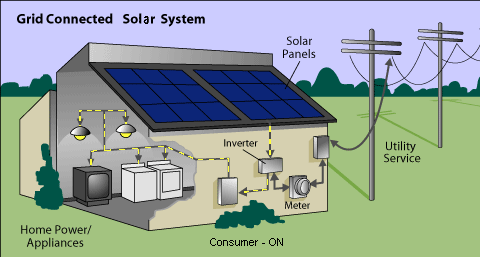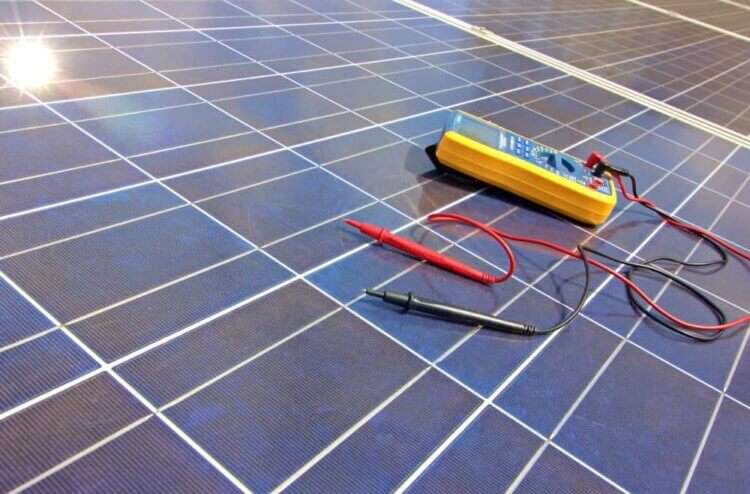Introduction:
The increased need for renewable and sustainable energy sources in today’s world has opened the road for Solar Power Plants for Home energy to be widely used. A clean, plentiful, and affordable energy source, solar power enables homeowners to take charge of their energy usage while lowering their carbon footprint. In this post, we’ll examine the idea of solar power systems for houses, dig into their advantages, and offer helpful tips for homeowners thinking about using this renewable energy source.
Understanding Residential Solar Power Plants for Home Energy:
A photovoltaic (PV) power system that is located on or close to the property is referred to as a solar power plant for a residence. These panels transform solar energy into electricity, which is then utilized to run a variety of household electronics and appliances. Solar panels, inverters, mounting systems, and electrical connections are only a few of the parts that make up solar power plants.
Solar power plants for homes:
The benefits of purchasing Solar Power Plants for Home for your house are numerous.
a. Energy Cost Savings: Producing own electricity allows you to drastically reduce or even altogether remove your dependency on grid-supplied power, which will save you a lot of money on energy in the long run.
b. Homeowners that use solar power plants have some degree of energy independence because they no longer exclusively rely on outside energy providers. This independence provides more control over energy use and safeguards against future changes in energy prices.
c. Environmental Impact: Solar energy emits no greenhouse gases and is a clean, sustainable source of energy. Homeowners may reduce their carbon footprint by using solar energy, which has a favorable effect on the environment.
Components of Solar Power Plants for Home:
To better understand how solar power plants function, it’s essential to familiarize yourself with their key components:
a. Solar Panels: These are the primary components that capture sunlight and convert it into electricity. They are typically installed on the roof or in an open area with maximum exposure to sunlight.
b. Inverters: Inverters convert the direct current (DC) electricity generated by the solar panels into alternating current (AC) electricity, which is suitable for powering household appliances.
c. Mounting Systems: Mounting systems secure the solar panels in place and ensure optimal positioning for maximum sunlight absorption.
d. Batteries (Optional): Homeowners can choose to incorporate battery storage systems into their solar power plants. These batteries store excess electricity generated during the day for use during periods of low sunlight or at night, providing a reliable power supply.
e. Electrical Connections: The solar power plant must be connected to the home’s electrical system to distribute solar-generated electricity throughout the house. This connection ensures seamless integration and utilization of solar energy.
Installation and Maintenance:
Installing a solar power plant for your home requires careful planning and professional installation. It is crucial to consult with experienced solar installers who can assess your property, determine the optimal panel placement, and handle the electrical connections. Additionally, routine maintenance, such as cleaning the panels and inspecting the system, is essential to ensure optimal performance and longevity.
Financial Considerations:
While the initial cost of installing a Solar Power Plant for a Home may seem significant, it’s essential to consider the long-term financial benefits. Various financial incentives and programs, such as government tax credits, rebates, and net metering, can significantly offset the upfront costs and improve the return on investment. Additionally, many solar providers offer financing options that make the transition to solar energy more affordable for homeowners.
Choosing the Right Solar Power System:
Selecting the appropriate Solar Power Plants for your Home depends on various factors, including your energy consumption, available space for solar panel installation, and budget. Consulting with reputable solar installers and exploring different system sizes and configurations will help you find the best fit for your energy needs.
Conclusion:
Investing in Solar Power Plants for Home is a forward-thinking decision that brings numerous benefits. From energy cost savings and environmental sustainability to increased property value and energy independence, Solar Power Plants for Home offer a sustainable and reliable energy solution for homeowners. By embracing solar power, we can contribute to a greener future while enjoying the advantages of renewable energy and reducing our dependence on fossil fuels.







